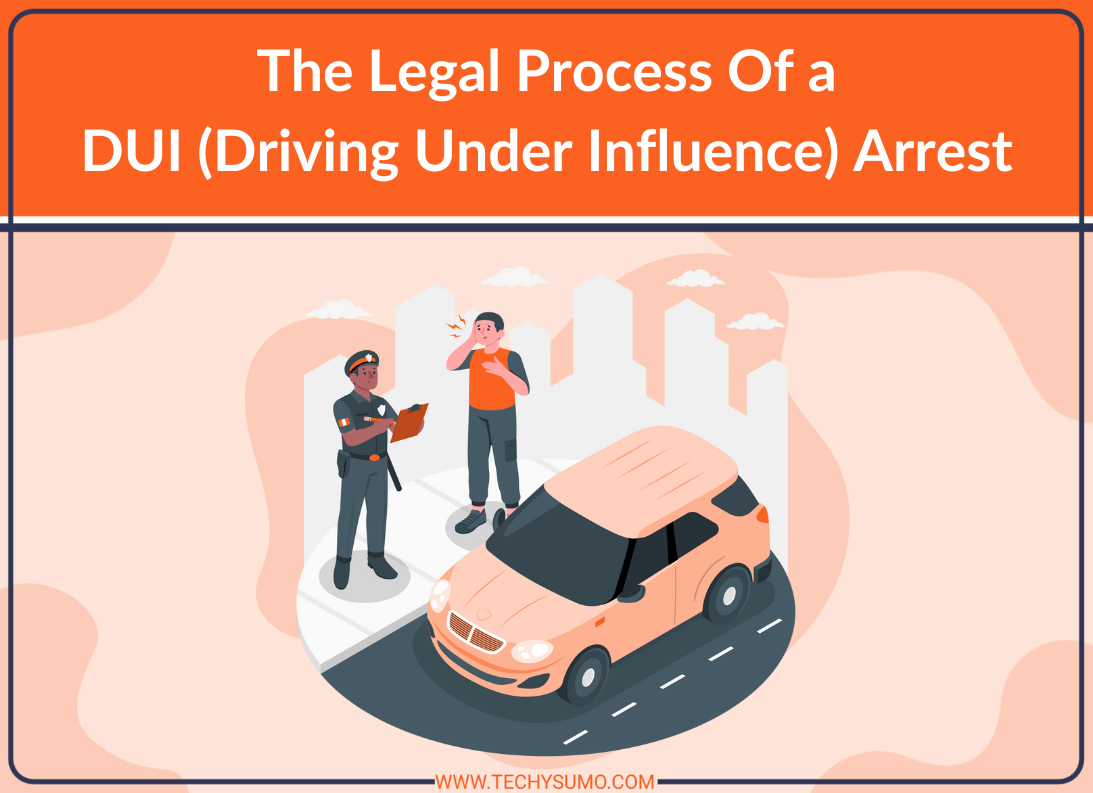A DUI arrest can be overwhelming, but understanding the legal process can help reduce stress and guide informed decisions. This guide outlines key stages, including the arrest, pre-trial procedures, court hearings, and sentencing, offering clarity for those facing a DUI or supporting someone who is.
Table of Contents
The DUI Arrest
The process begins with a law enforcement officer stopping a vehicle, often due to observed erratic driving, a traffic violation, or a routine checkpoint. If the officer suspects impairment from alcohol or drugs, the following steps usually take place:
Field Sobriety Testing
The officer may ask you to perform field sobriety tests, such as walking in a straight line, standing on one leg, or following an object with your eyes. These are designed to gauge your balance and coordination.
Breath, Blood, or Urine Test
A breathalyzer or other chemical test is generally administered to measure your Blood Alcohol Concentration (BAC). Refusing to take this test can lead to immediate consequences like license suspension, as implied consent laws apply in most states.
Formal Arrest
If the officer determines probable cause, you will be arrested and transported to the police station for booking, which includes fingerprinting, taking a mug shot, and recording personal details.
Also Read
Booking and Initial Appearance
After your arrest, you enter the booking phase. This is a crucial step where your charges are officially documented.
Bail and Release
You may be eligible for bail, which allows you temporary freedom while you await your court date. The amount and conditions of bail depend on factors like the severity of the offense and your past record.
Arraignment
This is your first court appearance, usually held within a few days of the arrest. At the arraignment, the charges against you are formally read, and you have the opportunity to enter a plea:
– Guilty
– Not Guilty
– No Contest
It’s common to have legal counsel at this stage, either a private attorney or a public defender. If you plead not guilty, the case moves to the pre-trial phase.
Pre-Trial Procedures
What happens between arraignment and trial involves several key steps that shape your defense and the eventual outcome.
Discovery Phase
Both the defense and prosecution exchange evidence related to your case. This may include police reports, lab results, bodycam footage, and witness lists.
Pre-Trial Motions
Your attorney may file motions to challenge the evidence, suppress certain statements, or change the trial venue. Winning a motion can dramatically impact your case.
Plea Bargaining
Many DUI cases are resolved through plea agreements, where you may plead guilty to a lesser offense in exchange for a more lenient sentence or reduced charges. This is negotiated between your lawyer and the prosecutor. A car accident lawyer, like those in Utah, can help navigate these negotiations and ensure your rights are protected throughout the process.
The Trial
If your case goes to trial, it will either be held before a judge (bench trial) or a jury.
Presentation of Evidence
Both sides present their evidence, question witnesses, and make arguments to support their case.
Verdict
The judge or jury delivers a verdict of guilty or not guilty after considering all the presented facts.
Sentencing
If convicted, sentencing will follow either immediately or within a few weeks. The severity of sentencing depends on many factors, including prior offenses, the level of impairment, your BAC, and whether any aggravating circumstances were present (like an accident or minor in the car).
Common DUI Penalties
- Fines
- License suspension or revocation
- Community service
- Mandatory DUI education or treatment programs
- Probation
- Jail time (especially for repeat or aggravated offenses)
- Installation of an ignition interlock device
Alternative Sentencing
Some jurisdictions offer diversion programs or allow community service in place of jail time, particularly for first offenders.
Why You Need Legal Representation
Navigating the DUI legal process is challenging and potentially life-changing. A qualified attorney can:
- Analyze evidence for possible defenses
- Negotiate plea deals
- Argue motions that could suppress evidence or dismiss charges
- Communicate with the prosecutor on your behalf
- Help you understand the long-term implications of various choices
Early legal intervention often makes a substantial difference in the outcome of a DUI case.
Conclusion
A DUI arrest is serious, but understanding the process empowers you to make the best decisions for your situation. Stay proactive, seek legal guidance, and remember that each phase—from arrest to sentencing—offers opportunities to protect your rights and shape your future.






